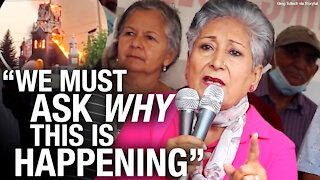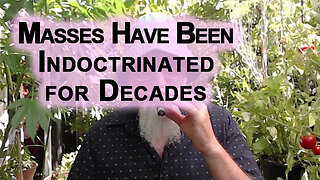Burning of Churches by TLP Extremists: Unveiling Distortions Amidst Religious Ideals"
Introduction
In an increasingly interconnected world, the actions of extremist groups often make headlines, leaving many to grapple with the question of how such acts align with the teachings of the religions they claim to represent. One recent example of this is the reported burning of churches by a group claiming to uphold their faith's ideals while uttering the phrase "Labiak Ya Rasool Allah." In times like these, it is crucial to delve deeper into the core teachings of religions and their shared values of compassion, tolerance, and respect for all, regardless of faith.
The Prophet's Words of Compassion
Among the most cherished teachings in Islam are the words of Prophet Muhammad (peace be upon him). A poignant reminder emerges from a narration attributed to him: "He who harms a Dhimmi hurts me, and he who hurts me irritates Allah." This statement, recorded by Imam Tabrani, underscores the Prophet's emphasis on compassion and respect for non-Muslim citizens living in Islamic states. The essence of this teaching lies in treating others as one would wish to be treated—a universal principle shared across religions.
The Distortion of Faith
Acts such as burning churches or targeting places of worship are not only distressing but also blatantly contradict the core tenets of most religions, including Islam. Such actions are frequently perpetrated by extremist groups that exploit religious teachings for their own agendas. These distorted interpretations not only harm innocent lives but also undermine the rich tapestry of religious wisdom that has guided humanity for centuries.
Interfaith Harmony
Central to the fabric of many religious traditions is the call for peaceful coexistence and interfaith harmony. The teachings of compassion and understanding extend not only to fellow believers but to people of all faiths. In Christianity, for instance, Jesus Christ's teachings emphasize love, forgiveness, and treating others with the same respect one desires for themselves. Likewise, in Judaism, the concept of "Tikkun Olam," or repairing the world, underscores the responsibility to work together for the betterment of society, regardless of religious differences.
Building Bridges, Not Walls
Addressing religious extremism requires concerted efforts from governments, religious leaders, and communities alike. Open dialogue, education, and promoting the true essence of religious teachings can foster understanding and counteract the divisive narratives propagated by extremist groups. By focusing on the shared values of compassion, tolerance, and respect for human dignity, we can build bridges that bridge the gaps between different faith communities.
Conclusion
The reported acts of burning churches while invoking religious phrases remind us of the complex challenges posed by extremist ideologies. It is vital to recognize that such actions are far from representing the core teachings of any faith. Rather, they are distortions that tarnish the reputation of religions that promote peace, compassion, and understanding. In times of uncertainty, it is imperative to turn to the teachings that emphasize the value of empathy and respect for all, irrespective of faith or background. By doing so, we can collectively work towards a world where mutual understanding and harmony prevail over division and hatred.
-
 13:54
13:54
Rebel News
2 years ago $2.77 earned“Politicians should be ashamed” for response to church burnings, vandalism
8.63K32 -
 1:26
1:26
MarcioNunes
1 year agothe radical environmentalists should be treated as “religious extremists.”
15 -
 7:32
7:32
The Liberal Loud Mouth
1 year agoSean Feucht: "Only Christians Should be Making Laws" Is Religious Extremism becoming mainstream?
8 -
 0:57
0:57
CarlKeeling
1 year agoFBI putting agents in churches because religious people are extremist
6 -
 8:33
8:33
Church Militant
1 year agoImpending Infighting? — Church Militant
732 -
 5:40
5:40
Rebel News
2 years ago $0.36 earnedDefending religious freedom isn't extremism, it's conservatism
1.43K13 -
 1:35:41
1:35:41
Rebel News
2 years agoDAILY | Burning Churches in BC, Censorship Bill C-10 Passes
7.99K41 -
 6:18
6:18
chycho
9 months agoMasses Indoctrinated for Decades: Demonizing Discussion of Religion & Politics in Social Settings
89 -
 0:26
0:26
Truthseekers17
1 year agoNEW - Climate extremists attack the monument of fundamental rights
11 -
 4:04
4:04
Action4Canada
7 months agoHindu Mobs Destroy 300 Churches as Indian Govt Fueling 'Serious Religious Persecution'
3341